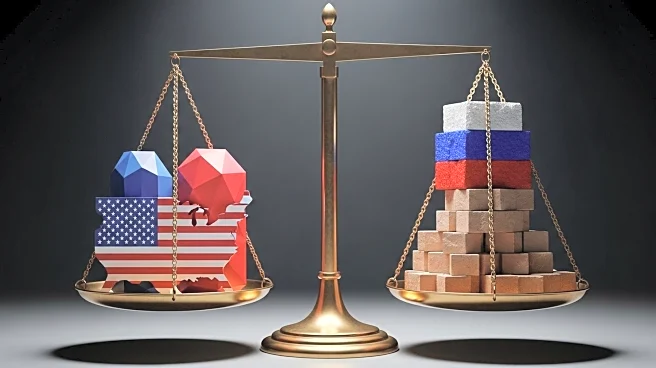What's Happening?
Treasury Secretary Scott Bessent has indicated that the United States is prepared to collaborate with European nations to impose additional sanctions on countries purchasing Russian oil. This move aims to 'collapse' the Russian economy amid ongoing tensions due to the war in Ukraine. Bessent emphasized the need for European partners to join the U.S. in increasing pressure on Russia, suggesting that secondary tariffs on nations buying Russian oil could force Russian President Vladimir Putin to negotiate. The comments follow recent U.S. tariffs on India for its continued oil purchases from Russia. Bessent's statements come in the wake of Russia's largest air attack on Ukraine, which resulted in casualties and damage in Kyiv.
Why It's Important?
The proposed sanctions and tariffs could significantly impact global economic relations, particularly affecting countries that continue to engage in trade with Russia. The strategy aims to weaken Russia's economic stability, potentially altering the geopolitical landscape. For the U.S., this approach aligns with President Trump's broader economic agenda, which includes leveraging tariffs as a tool for international negotiations. However, the plan also risks straining relations with countries affected by the tariffs, potentially leading to economic repercussions for U.S. businesses and consumers. The outcome of these measures could influence global oil markets and international diplomatic relations.
What's Next?
The U.S. administration is likely to continue advocating for increased sanctions and tariffs, seeking support from European allies. The effectiveness of these measures will depend on the level of international cooperation and the resilience of the Russian economy. Additionally, the Trump administration's appeal to the Supreme Court regarding the legality of its tariff strategy could have significant implications for future economic policies. If the court rules against the administration, it may need to explore alternative methods to maintain its economic pressure on foreign nations.










